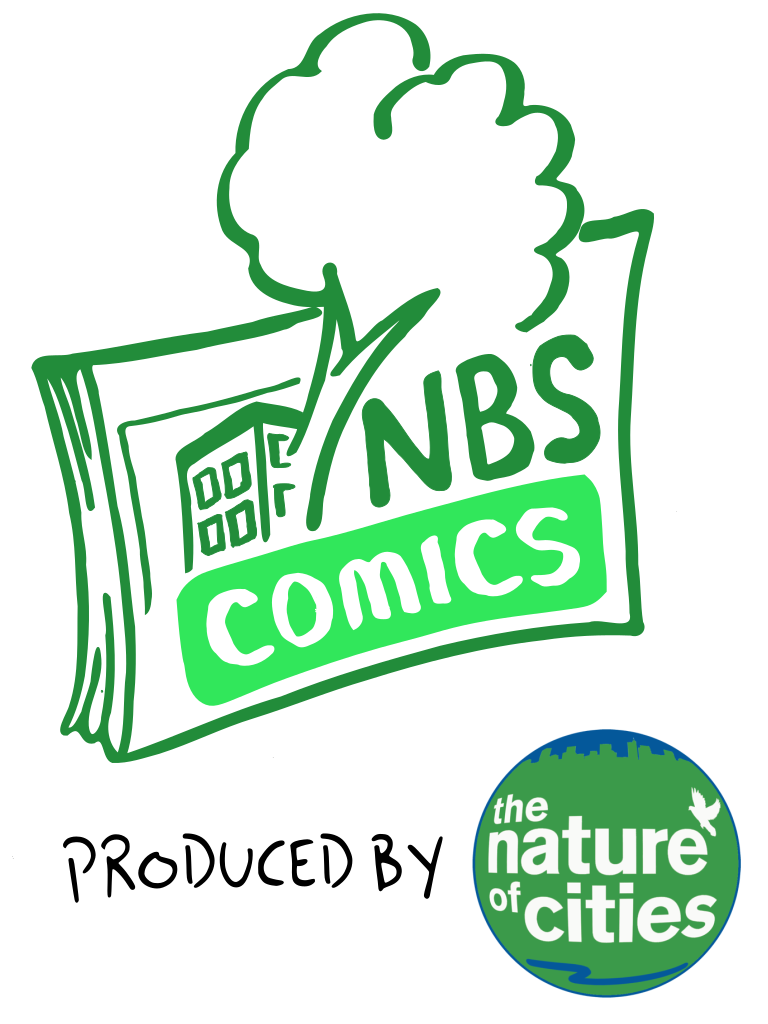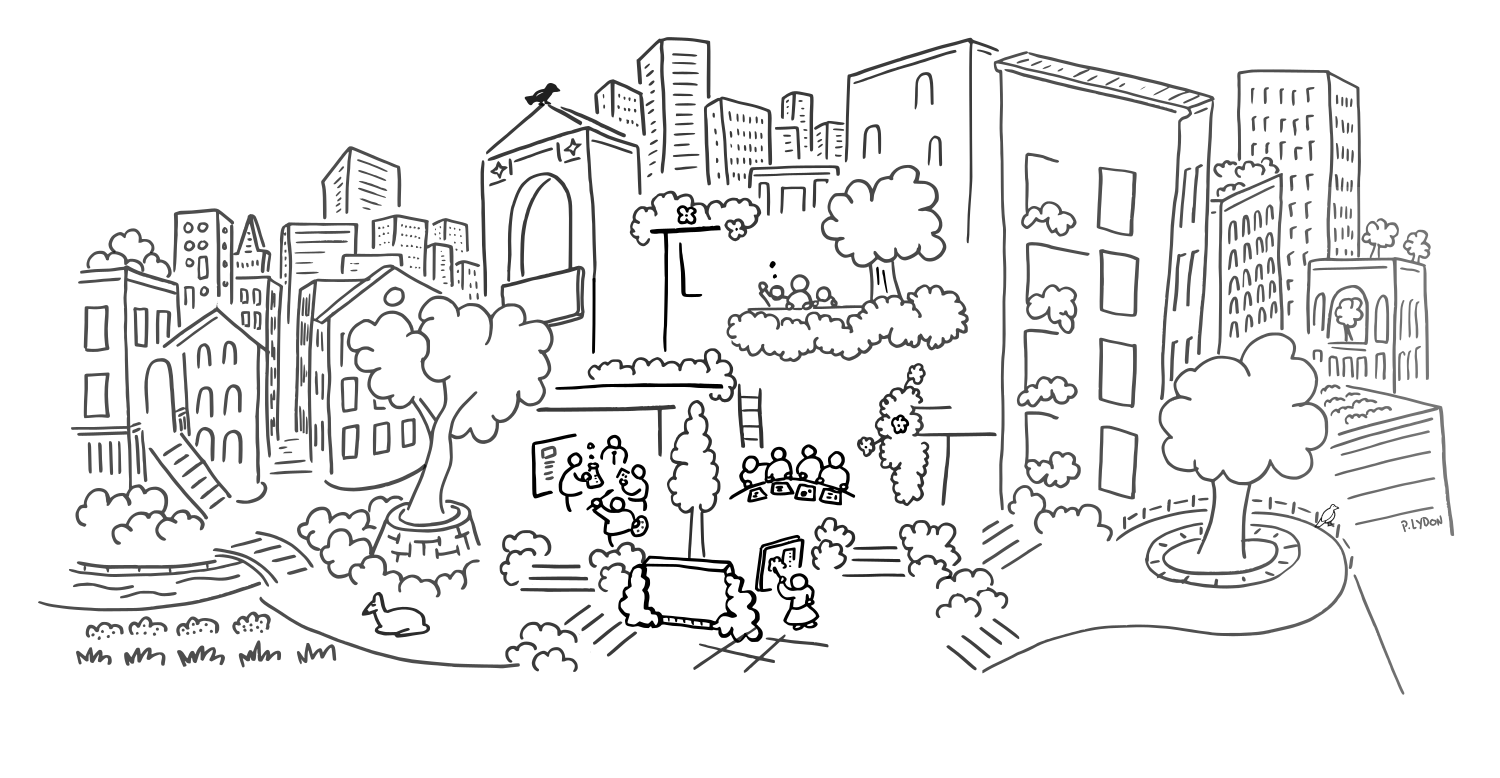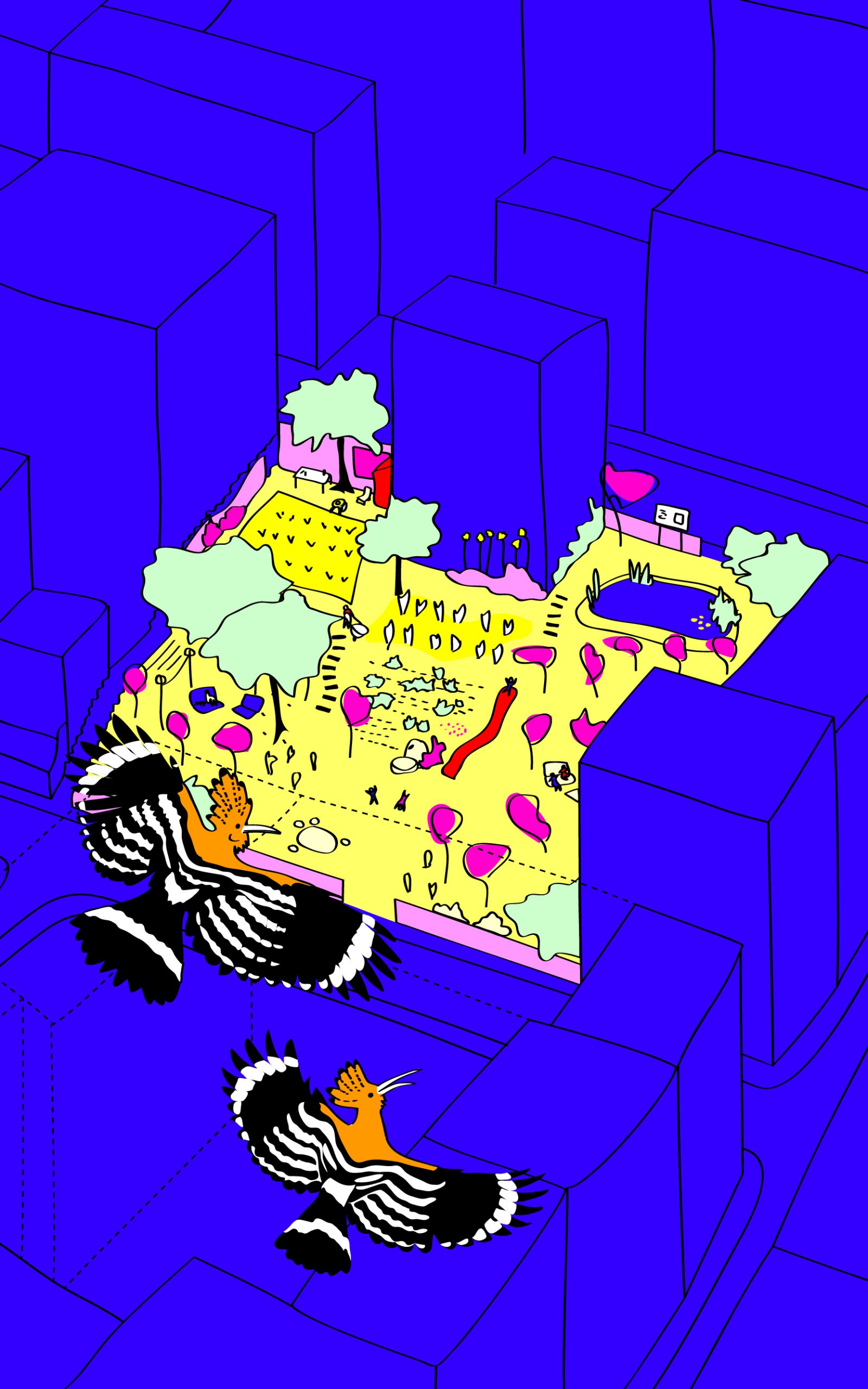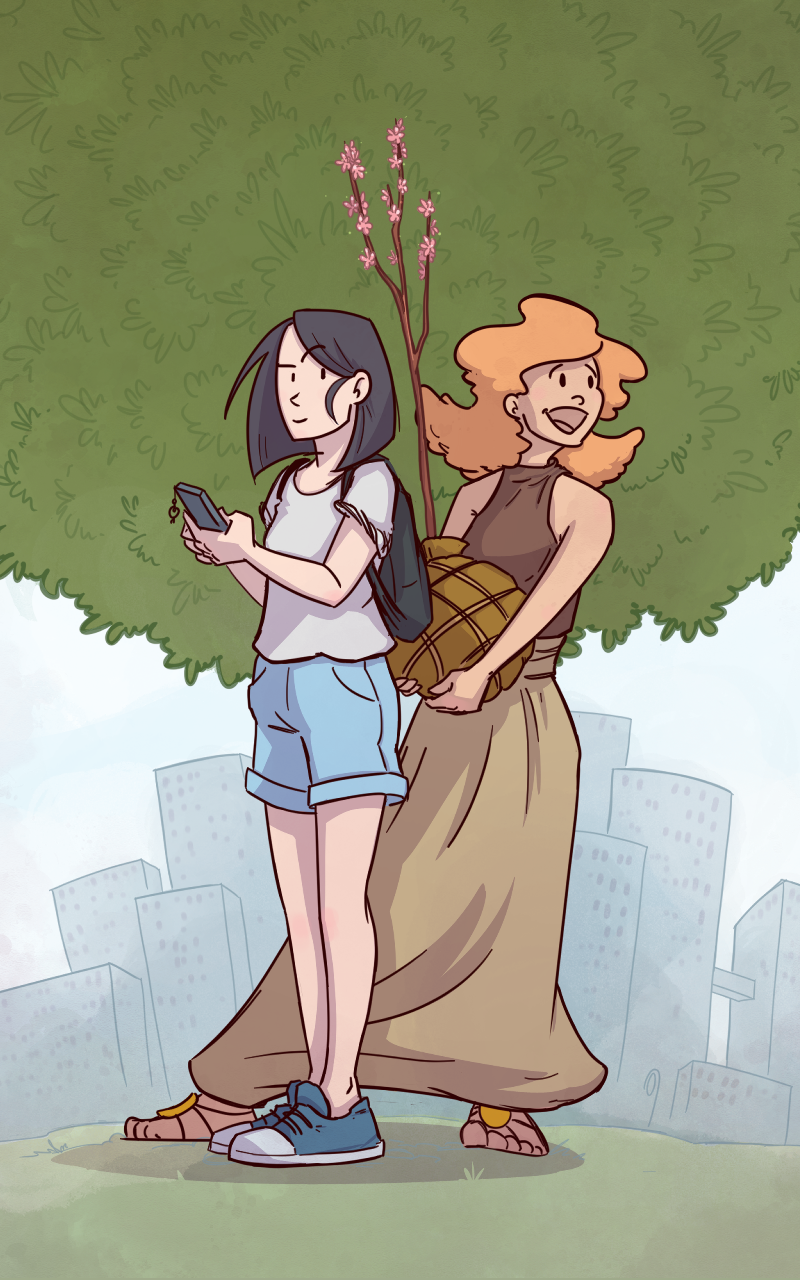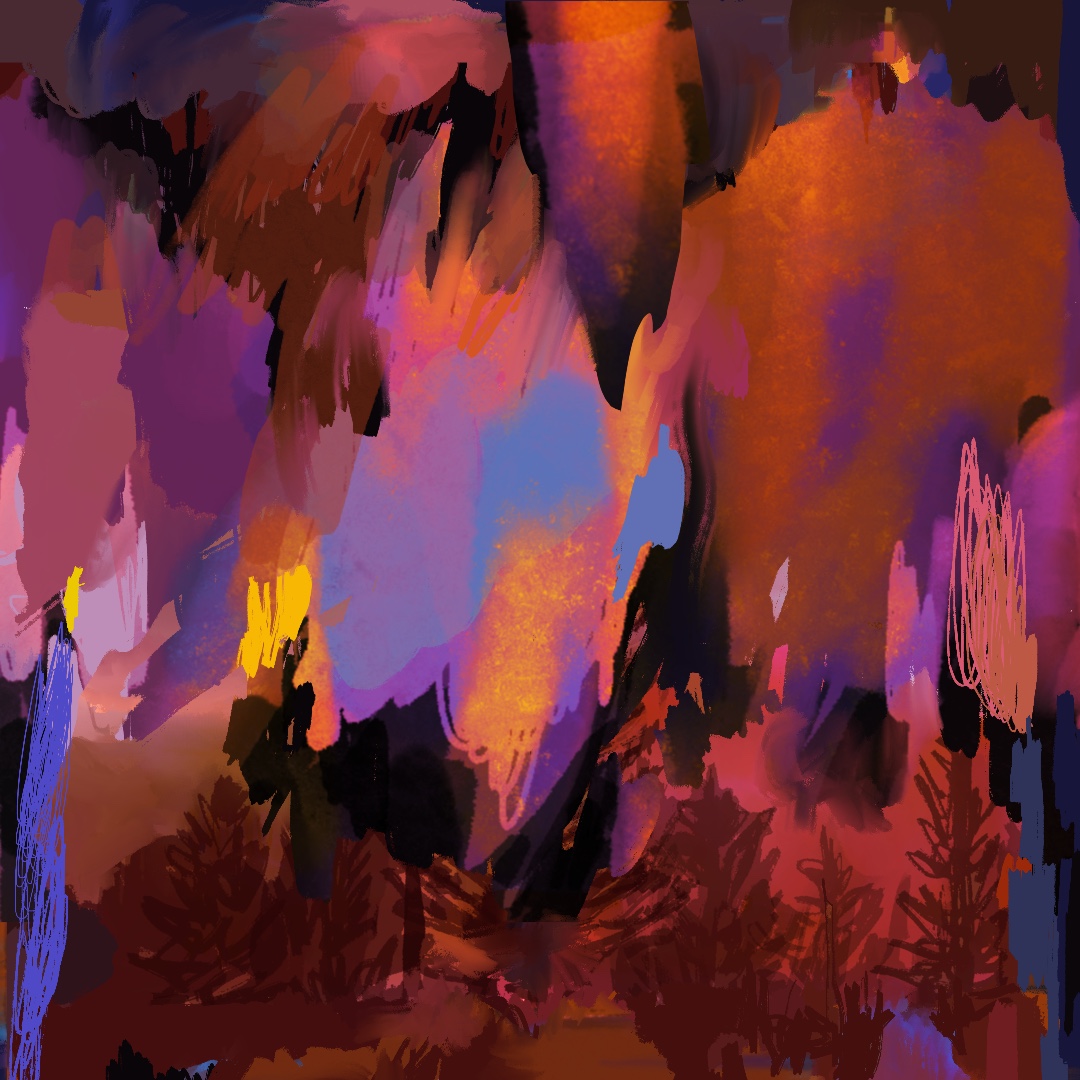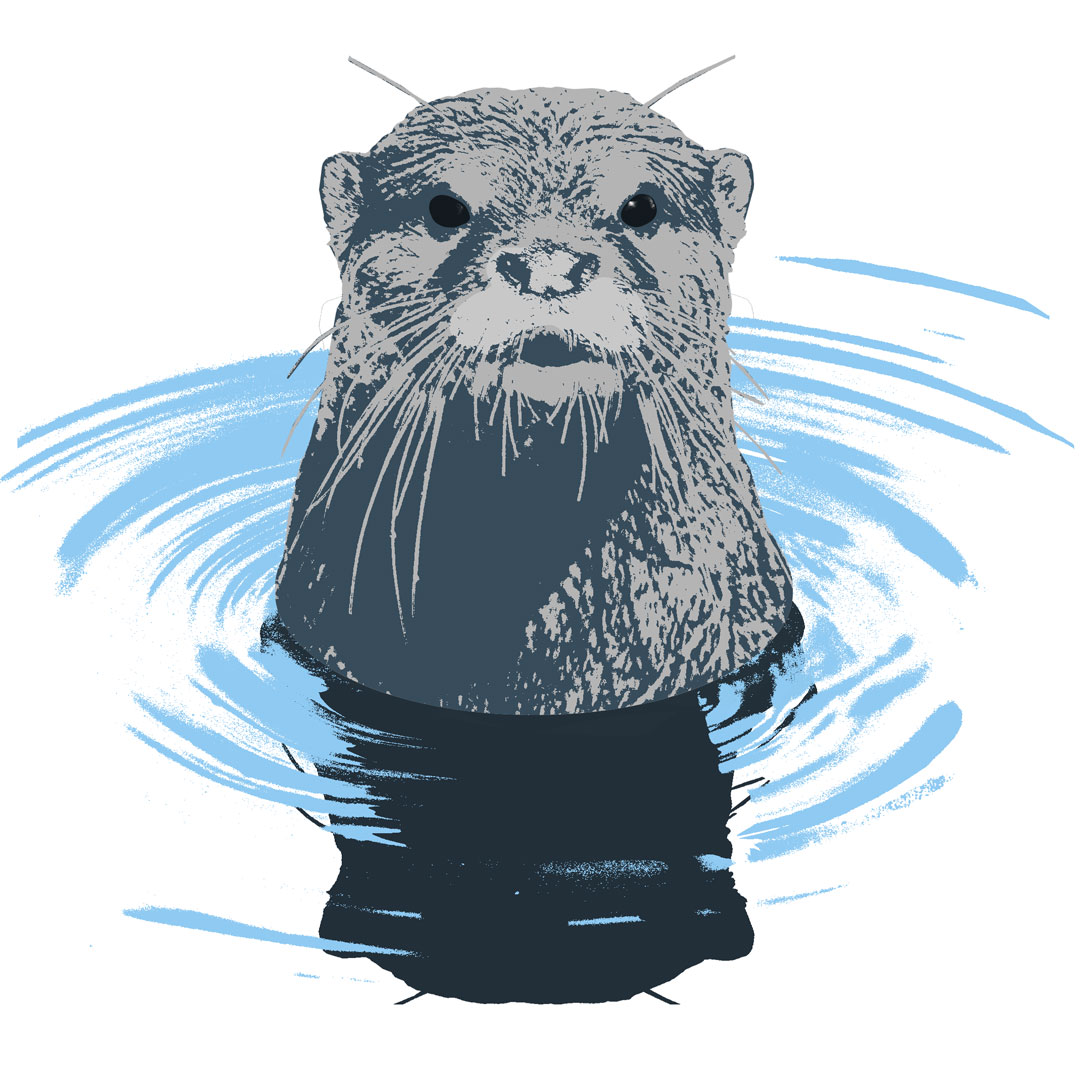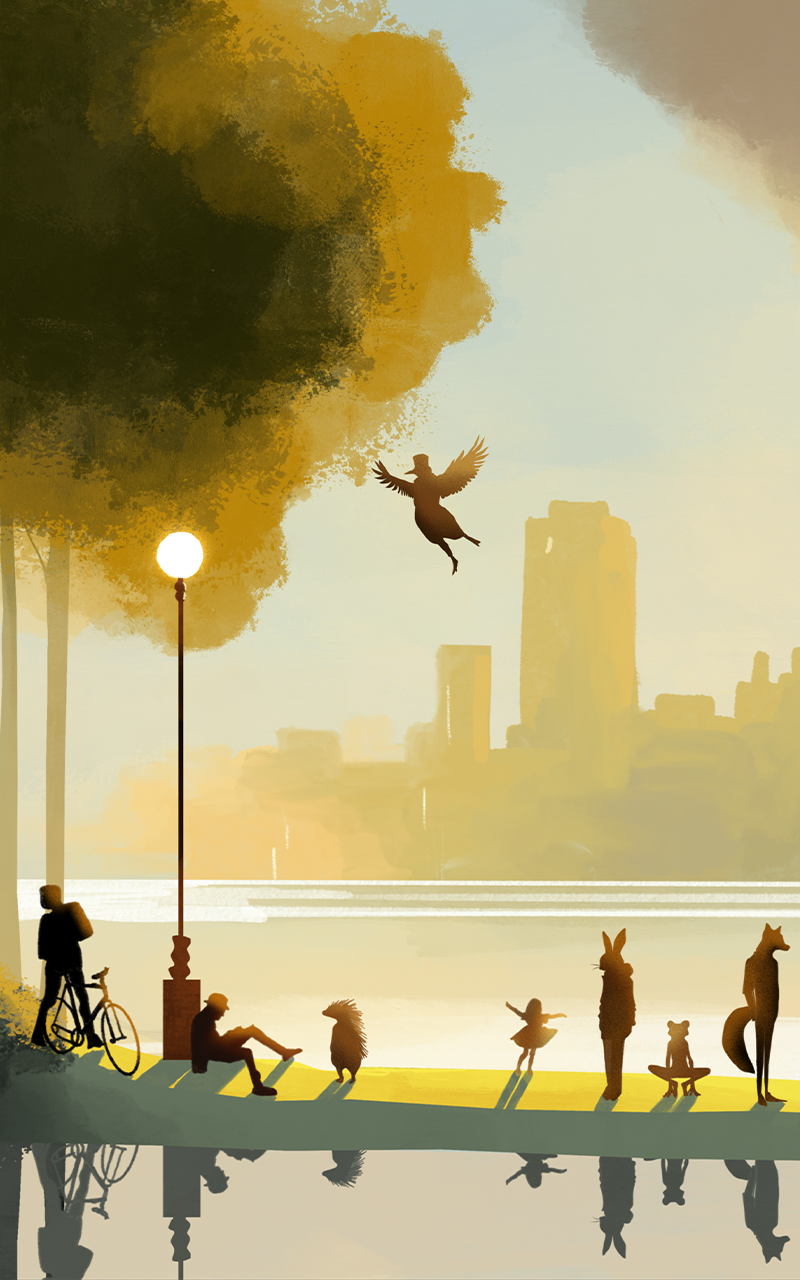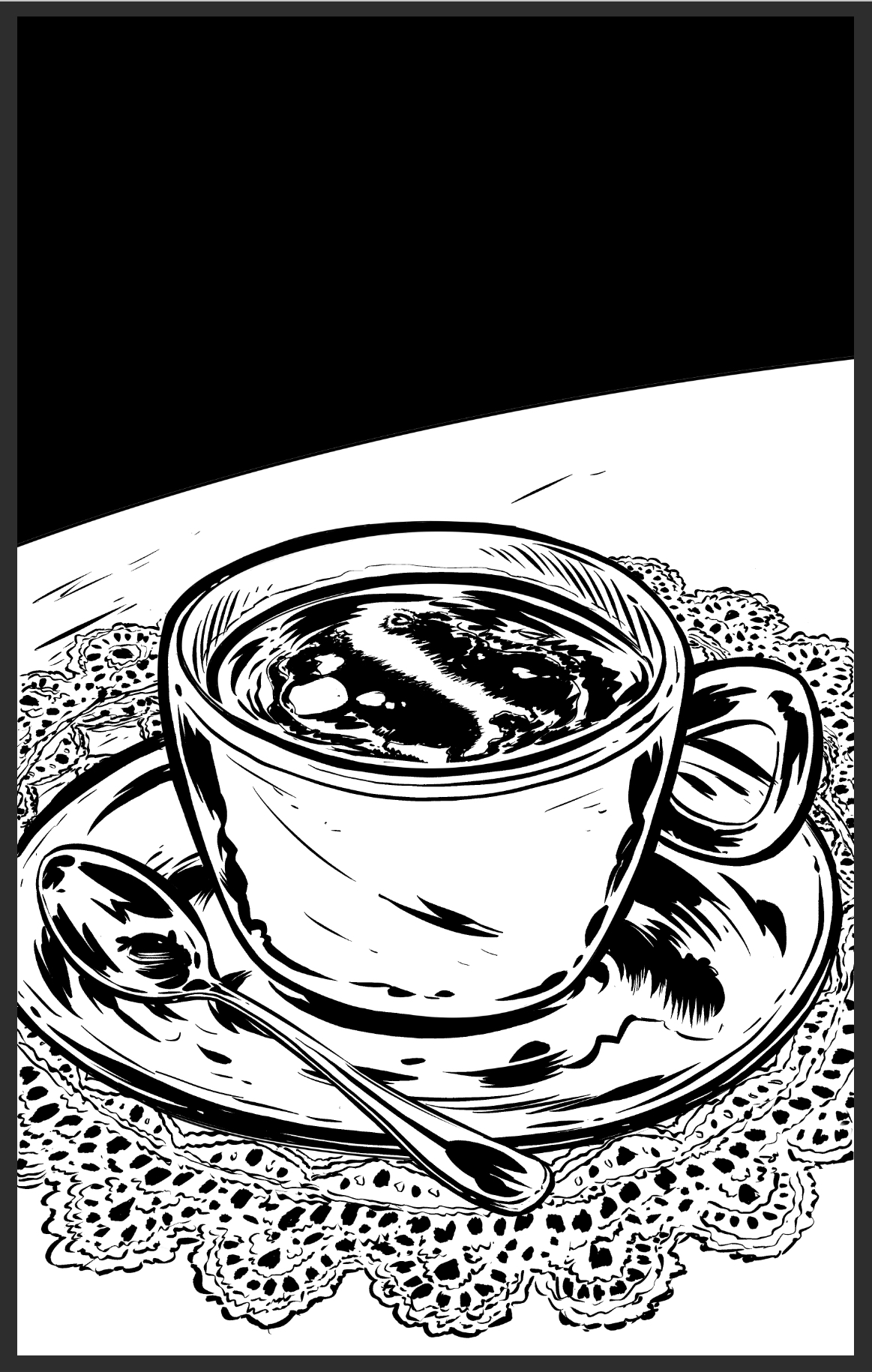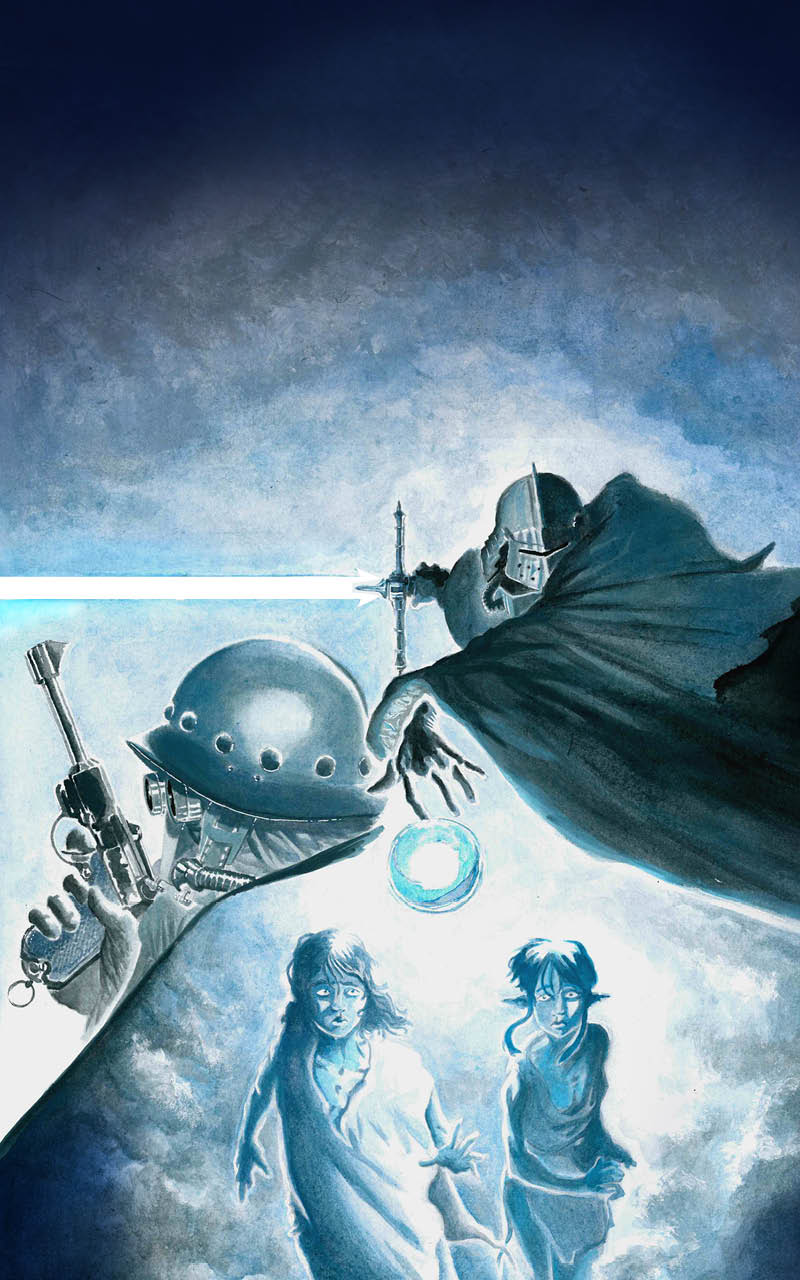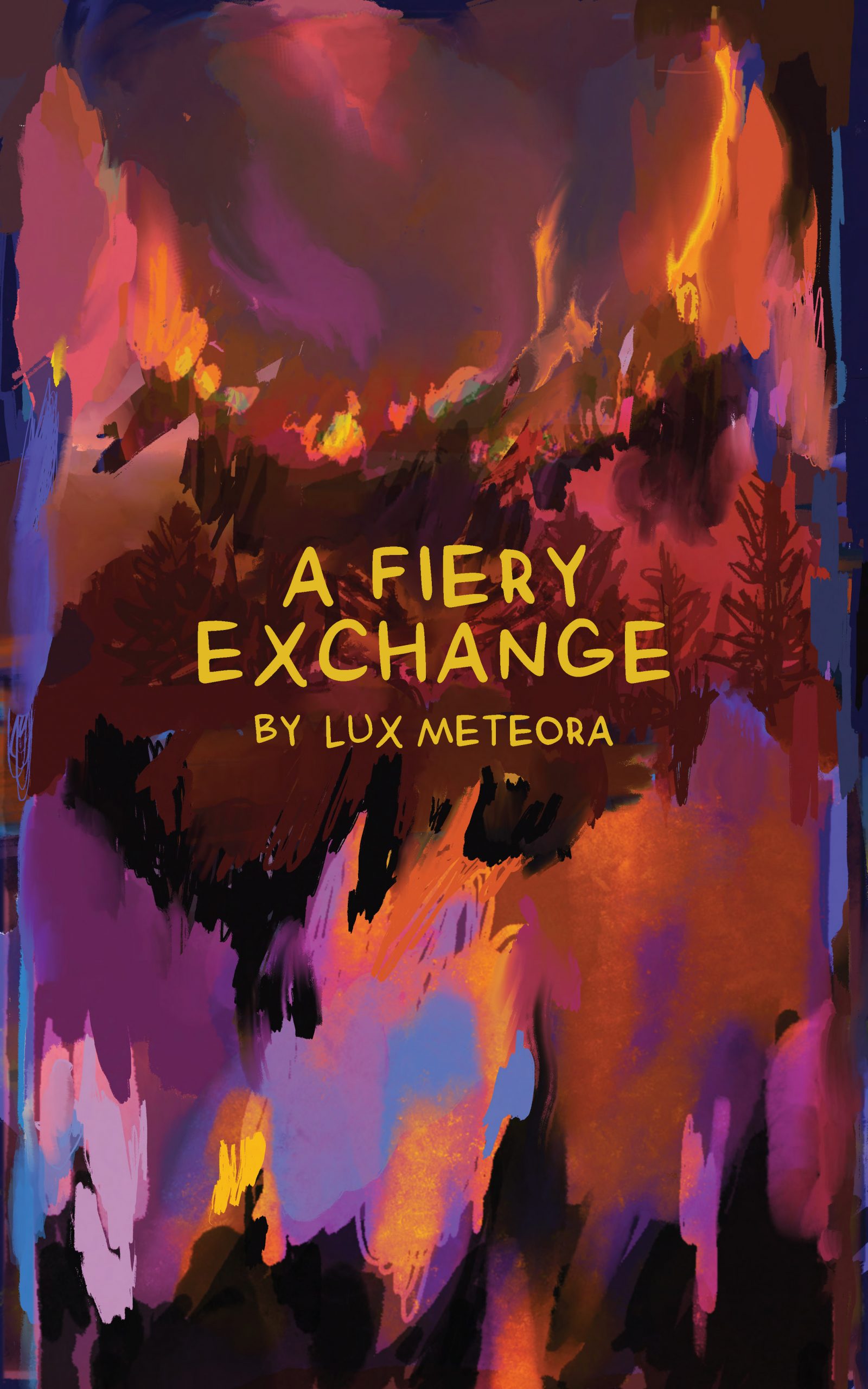
by Lux Meteora
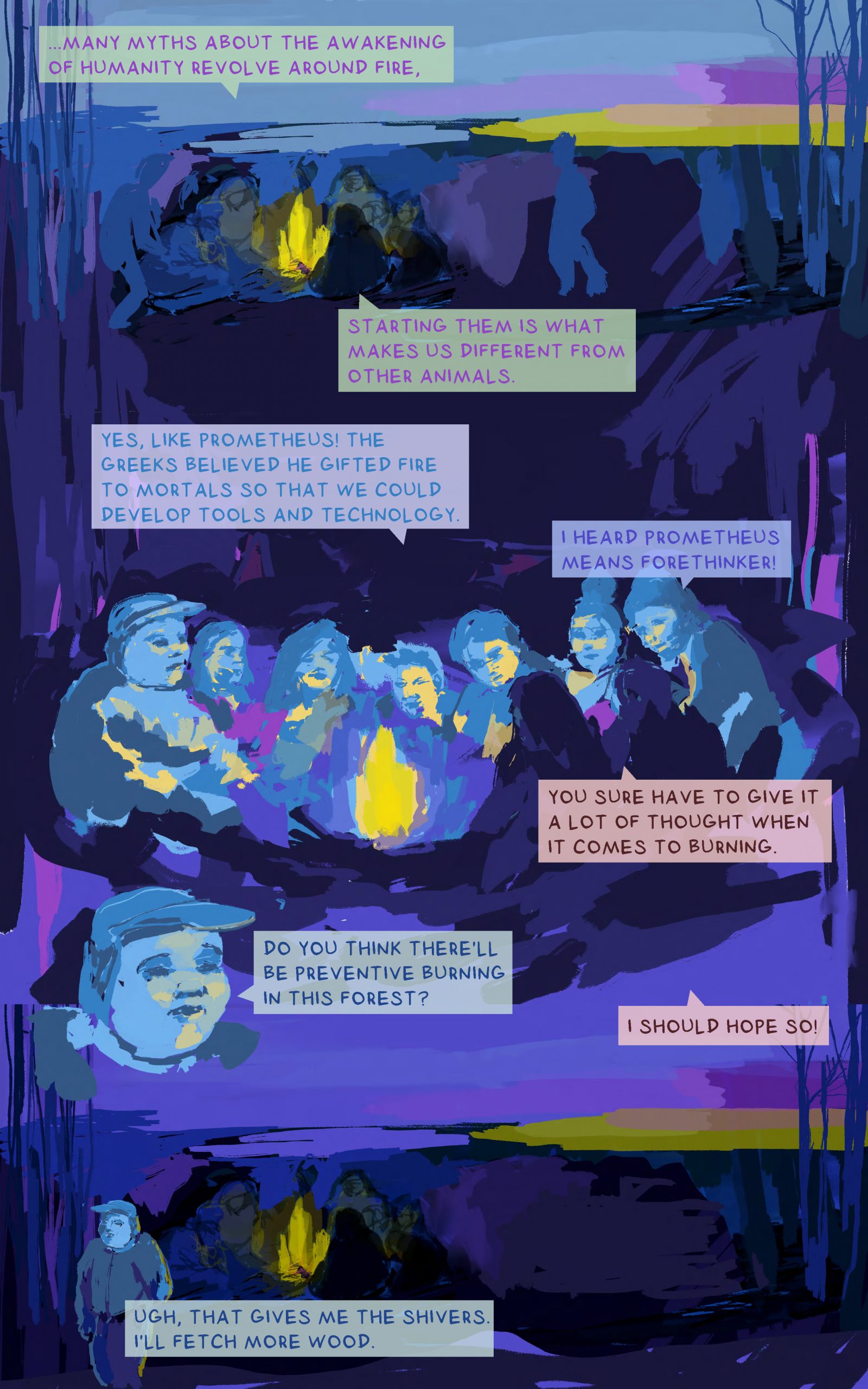
starting them is what makes us different from other animals.
Yes, like Prometheus! The Greeks believed he gifted fire to mortals so that we could develop tools and technology.
I heard Prometheus means forethinker!
You sure have to give it a lot of thought when it comes to burning.
Do you think there’ll be preventive burning in this forest?
I should hope so!
Ugh, that gives me the shivers. I’ll fetch more wood.
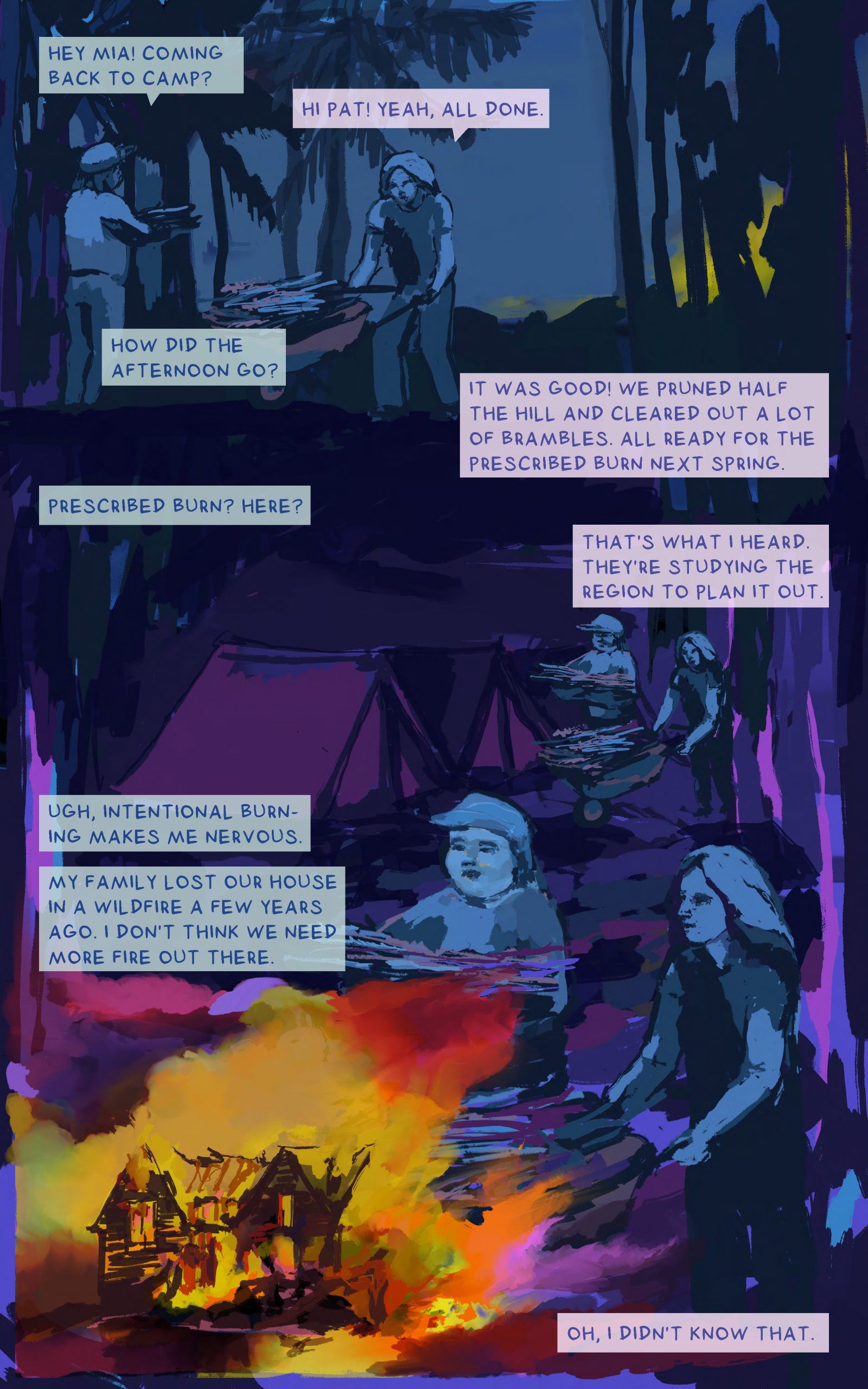
Hi Pat! Yeah, all done.
How did the afternoon go?
It was good! We pruned half the hill and cleared out a lot of brambles. All ready for the prescribed burn next spring.
Prescribed burn? Here?
That’s what I heard. They’re studying the region to plan it out.
Intentional burning makes me nervous.
My family lost our house in a wildfire a few years ago. I don’t think we need more fire out there.
Oh, I didn’t know that.
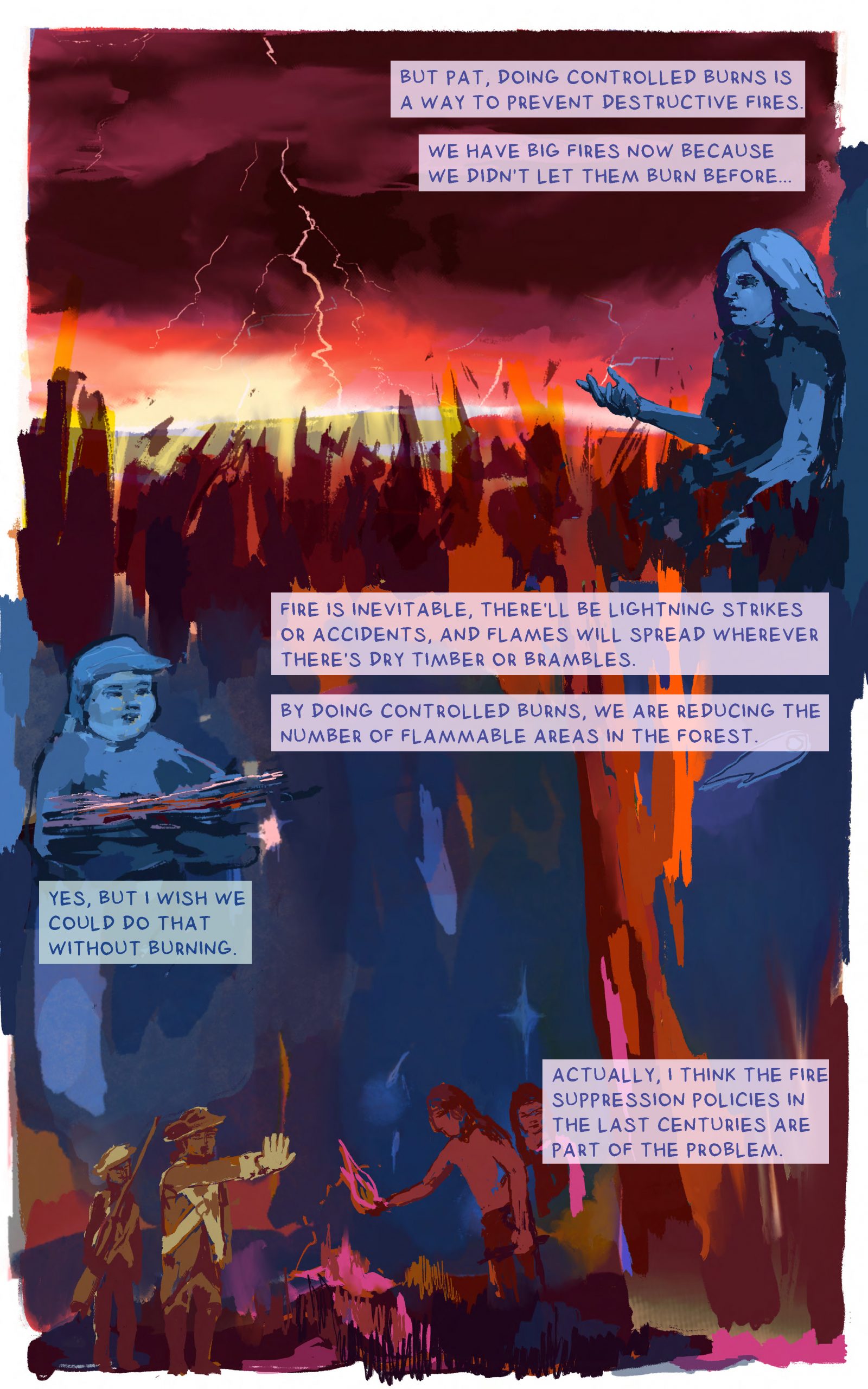
We have big fires now because we didn’t let them burn before…
Fire is inevitable, there’ll be lightning strikes or accidents, and flames will spread wherever there’s dry timber or brambles.
By doing controlled burns, we are reducing the number of flammable areas in the forest.
Yes, but I wish we could do that without burning.
Actually, I think the fire suppression policies in the last centuries are part of the problem.
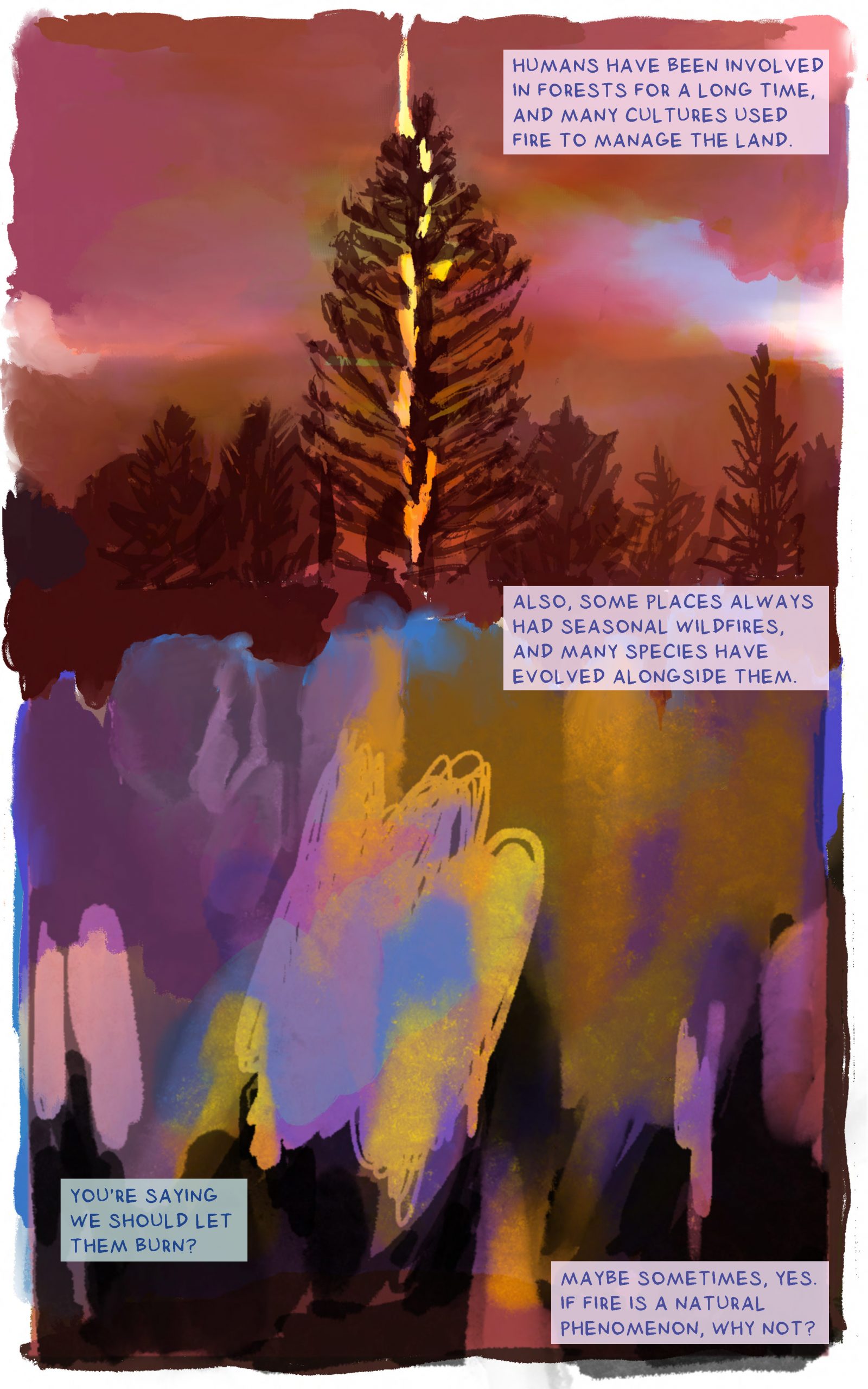
Also, some places always had seasonal wildfires,
and many species have evolved alongside them.
You’re saying we should let them burn?
Maybe sometimes, yes. If fire is a natural phenomenon, why not?
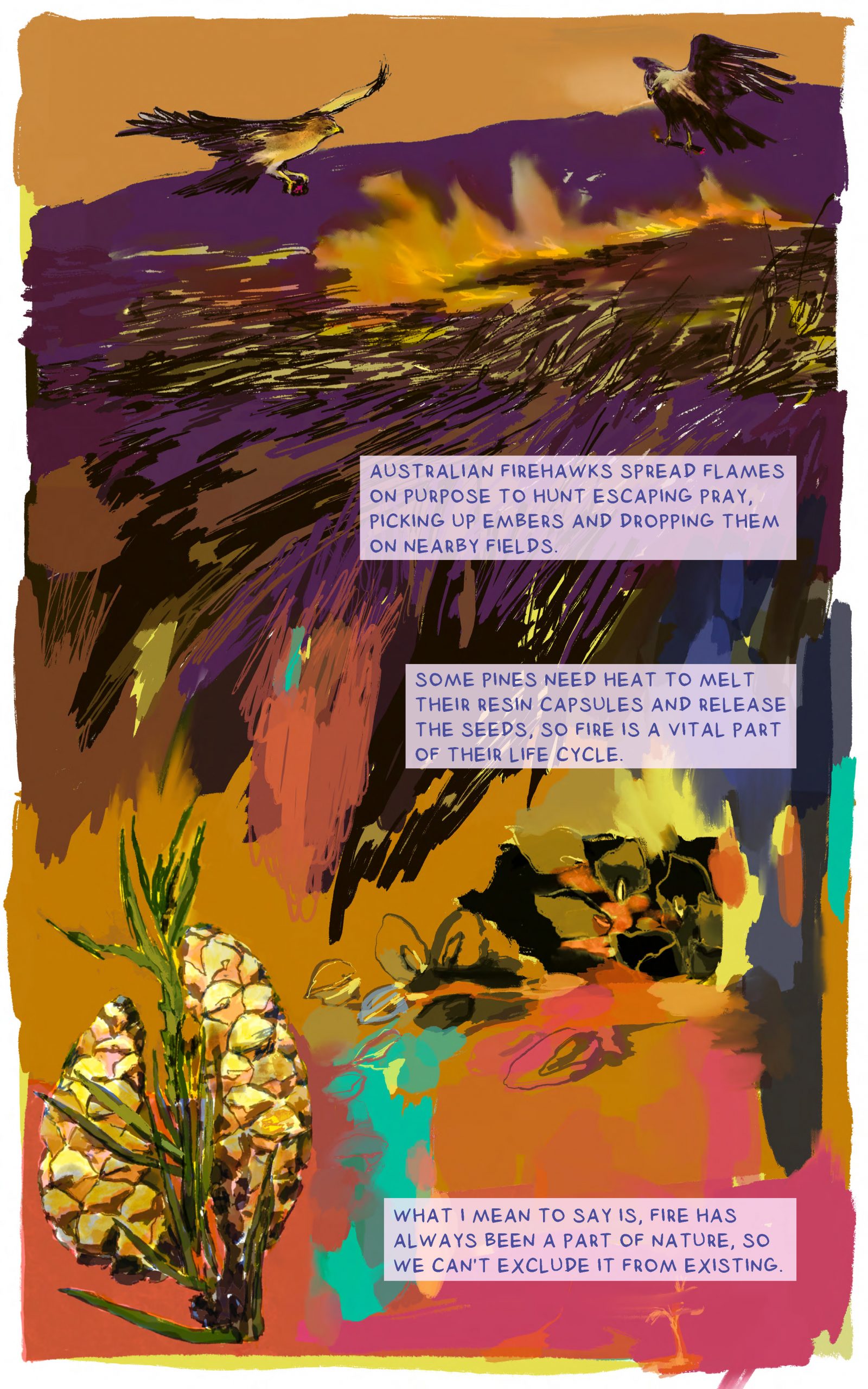
Some pines need heat to melt their resin capsules and release the seeds, so fire is a vital part of their life cycle.
What I mean to say is, fire has always been a part of nature, so we can’t exclude it from existing.
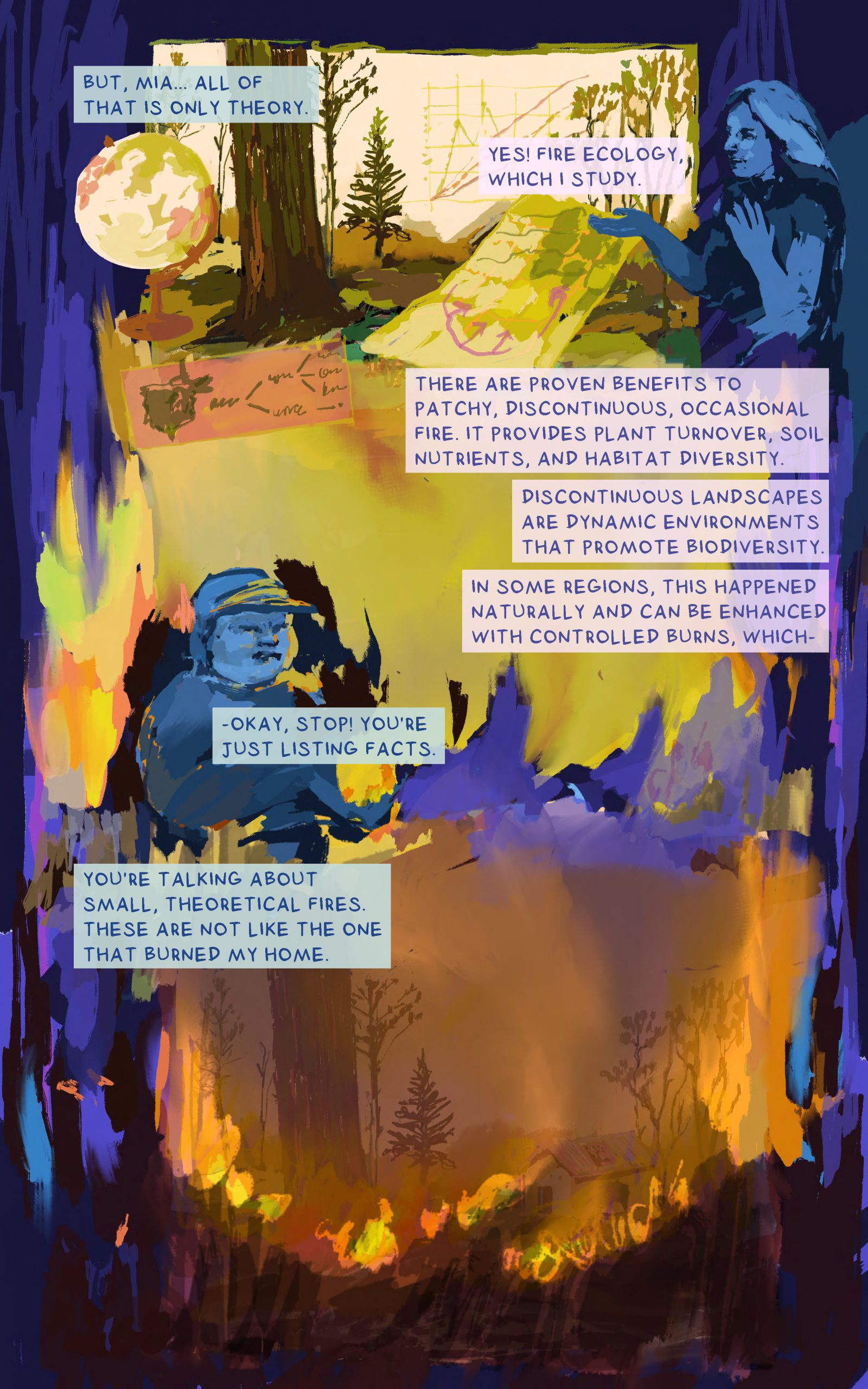
Yes! Fire ecology, which I study.
There are proven benefits to patchy, discontinuous, occasional fire. It provides plant turnover, soil nutrients, and habitat diversity.
Discontinuous landscapes are dynamic environments that promote biodiversity.
In some regions, this happened naturally and can be enhanced with controlled burns, which-
-Okay, stop! You’re just listing facts.
You’re talking about small, theoretical fires. These are not like the one that burned my home.
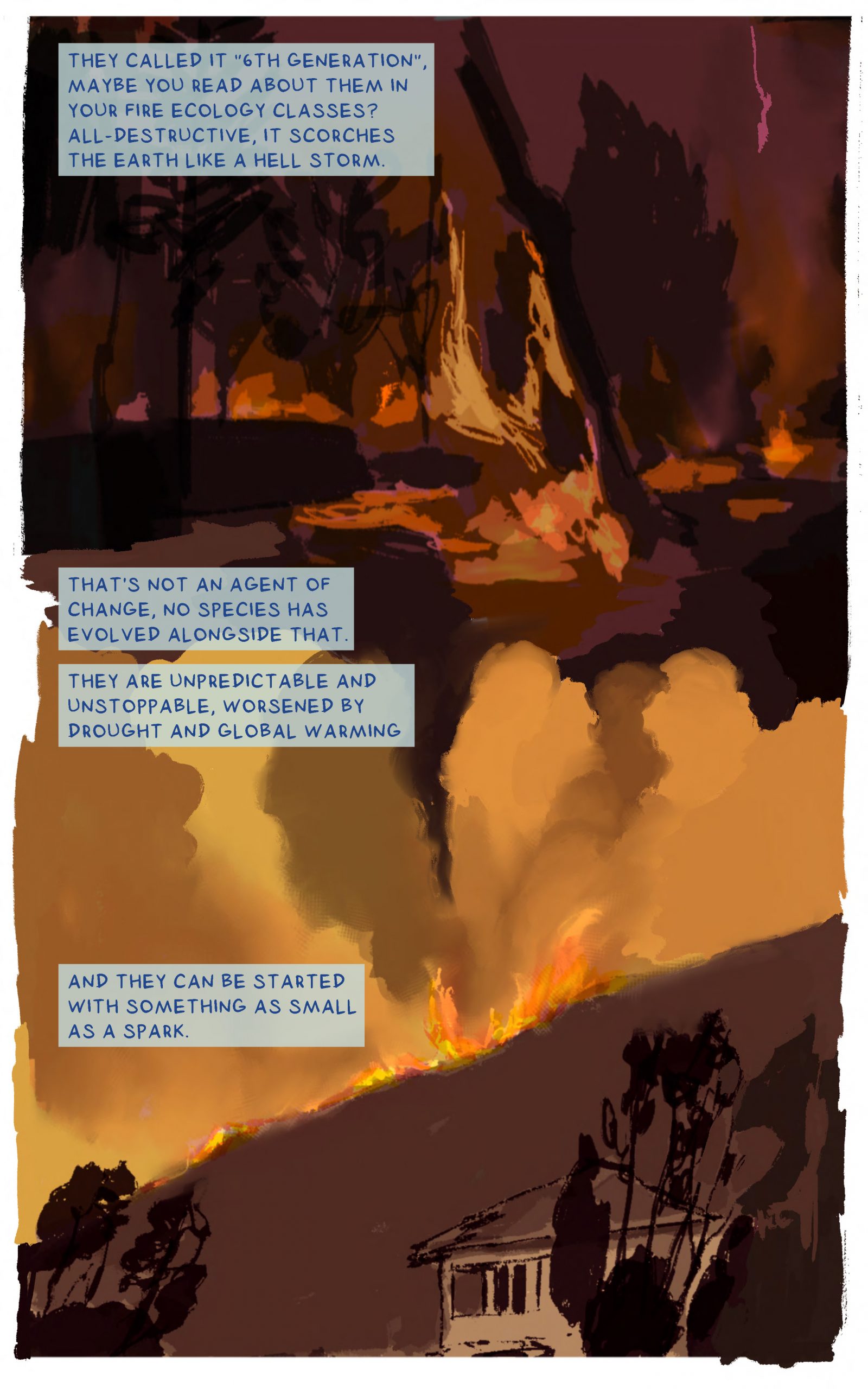
All-destructive, it scorches the earth like a hell storm.
That’s not an agent of change, no species has evolved alongside that.
They are unpredictable and unstoppable, worsened by drought and global warming,
and they can be started with something as small as a spark.
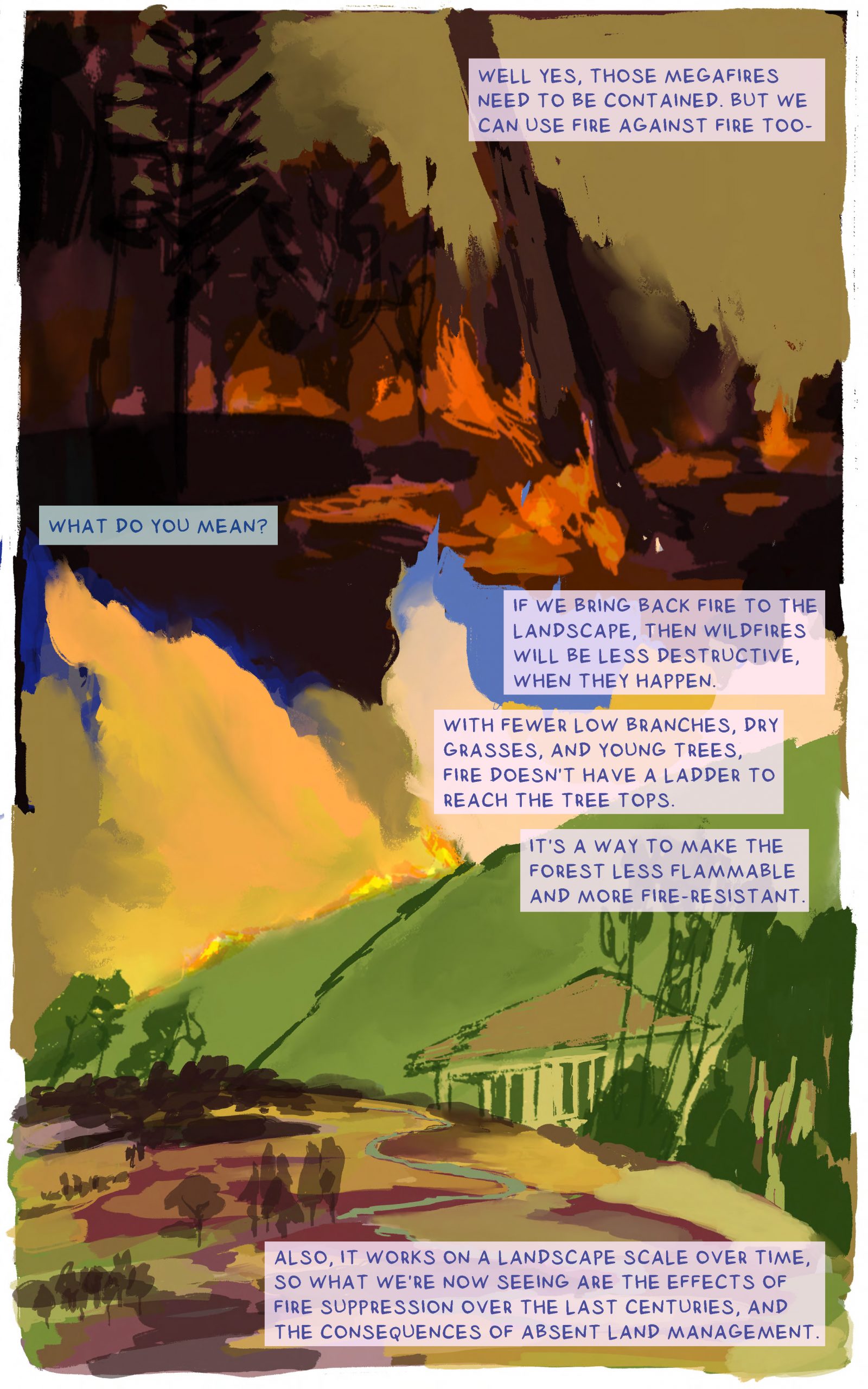
What do you mean?
If we bring back fire to the landscape, then wildfires will be less destructive, when they happen.
With fewer low branches, dry grasses, and young trees, fire doesn’t have a ladder to reach the tree tops.
It’s a way to make the forest less flammable and more fire-resistant.
Also, it works on a landscape scale over time, so what we’re now seeing are the effects of fire suppression over the last centuries, and the consequences of absent land management.
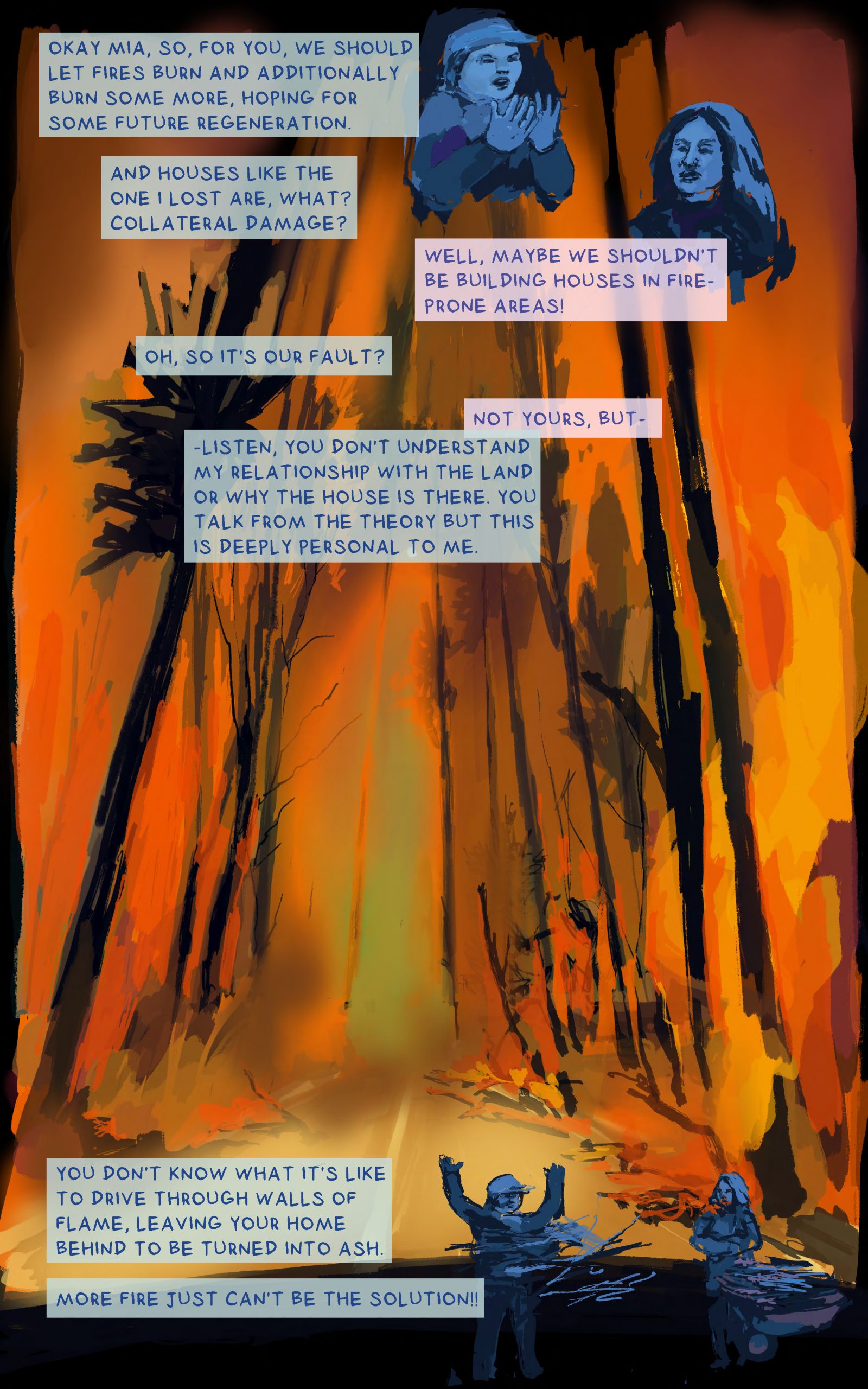
and houses like the one I lost are, what? collateral damage?
Well, maybe we shouldn’t be building houses in fire-prone areas!
Oh, so it’s our fault?
Not yours, but-
-Listen, you don’t understand my relationship with the land or why the house was there. You talk from the theory but this is deeply personal to me.
You don’t know what it’s like to drive through walls of flame, leaving your home behind to be turned into ash!
More fire just can’t be the solution!!
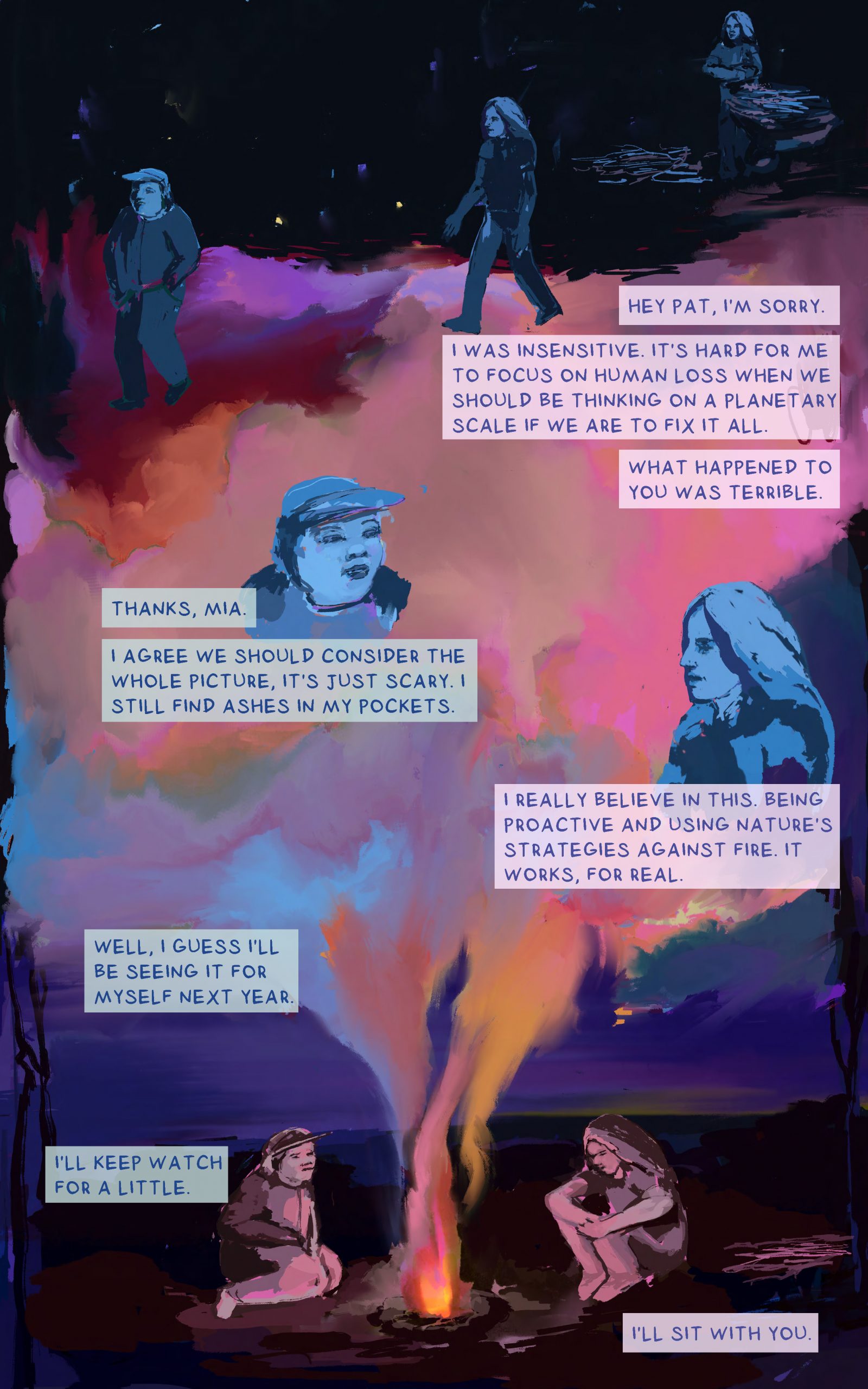
I was insensitive. It’s hard for me to focus on human loss when we should be thinking on a planetary scale if we are to fix it all.
What happened to you was terrible.
Thanks, Mia.
I agree we should consider the whole picture, it’s just scary. I still find ashes in my pockets.
I really believe in this. Being proactive and using nature’s strategies against fire. It works, for real.
Well, I guess I’ll be seeing it for myself next year.
I’ll keep watch for a little.
I’ll sit with you.
what is ‘nbs’ about this comic?
Fire might seem purely destructive, but in nature, it plays a restorative role by clearing out old vegetation and making way for new growth. However, climate change is making wildfires more intense and frequent, disrupting this balance. Warmer temperatures and drier conditions mean fires spread faster and burn hotter, causing more damage. While fire can rejuvenate ecosystems, we need to address climate change to keep these natural processes in check and prevent catastrophic wildfires.
